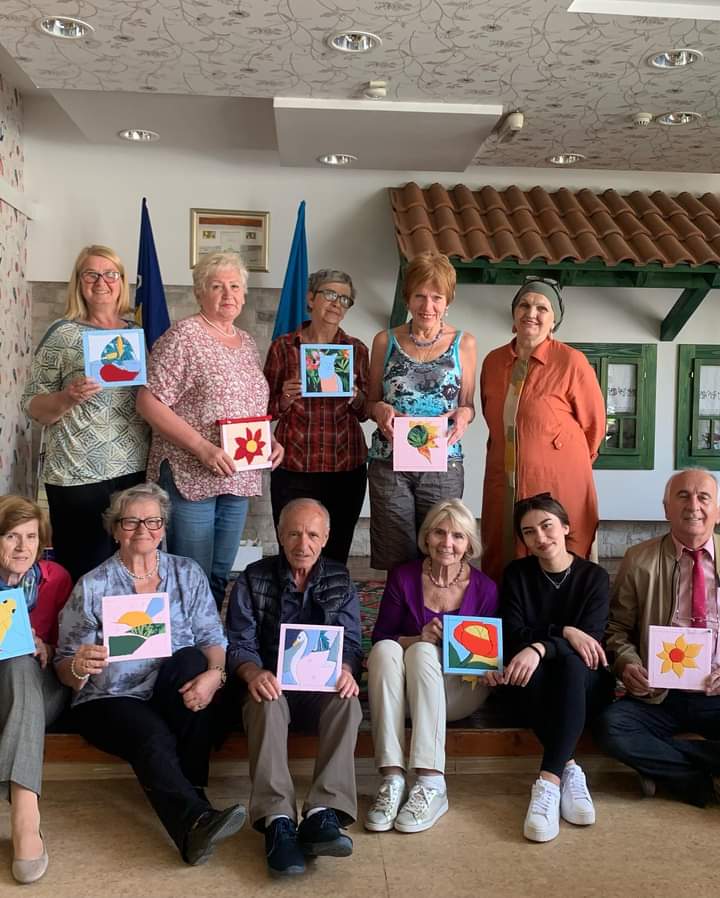
The elderly population in Bosnia and Herzegovina, specifically those over 60, often don’t have enough available activities to fill their free time. A growing number of Healthy Aging Centers seek to address the needs of older people, offering numerous workshops and activities they can enjoy every day without having to spend large sums of money. These are not nursing homes, as is commonly assumed.
Ešref Slatina has been attending the Healthy Aging Center in Novo Sarajevo Municipality since 2016 and emphasizes that he has found “his own peace” there. He recommends the Ccenter to everyone, believing that it’s a place where they can find their true selves. “I visited the premises before because I knew people who were going to the Center, and I liked it. I’ve been hanging out there for about seven or eight years, and I enjoy it,” said Ešref.
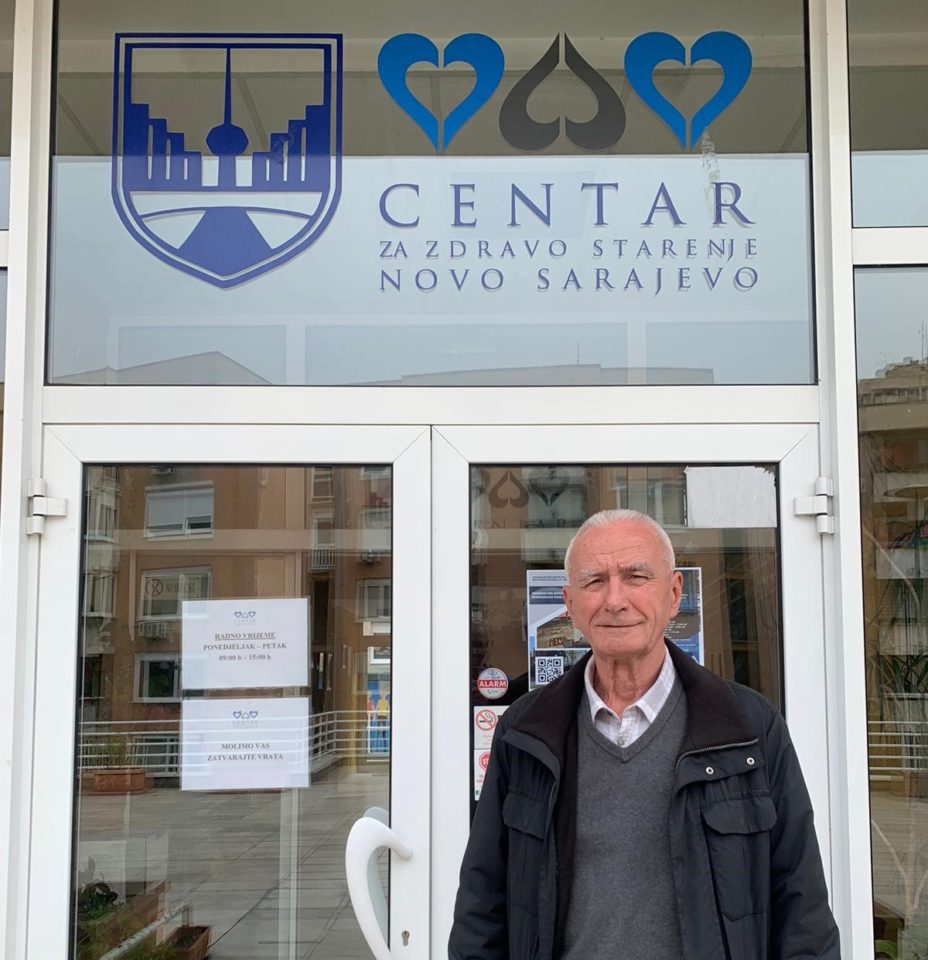
He explained that people at the Center are open and always willing to help, so he has made new friends. “Here, anyone who’s interested can find something for themselves. We have a range of possibilities, from computer classes, languages, chess, card games, access to the library. I familiarized myself with computer science at the Center because I had a need to communicate with people on social media, which was very important to me. The Center also gives us the opportunity to attend the theater,” Ešref elaborated, listing some of the Center’s activities.
At the Center, they celebrate religious holidays and birthdays together, which Ešref points out is something he couldn’t find at home. He has two children and four grandchildren, and he started going to the Center a year before losing his wife. “When I’m alone in the room, that loneliness kills me, and that’s hard for children to understand. The Center is a wonderful thing for this population,” said Ešref.
Improved Health and Well-being
According to the United Nations Population Fund (UNFPA), the proportion of elderly people in Bosnia and Herzegovina will reach approximately 37 percent of the total population by 2050 as a result of low fertility rates and the emigration of skilled young people. UNFPA, in collaboration with the Public Health Partnership and researchers from the University College London, found that healthy aging centers represent an “economical way of organizing activities and providing support to improve the health and well-being of the elderly, thereby increasing the number of years they will live a healthy life.”
Edina Bašić, the manager of the Healthy Aging Center, explained that the idea for establishing the Healthy Aging Center in Novo Sarajevo came from the Public Health Partnership, which is also the umbrella organization for the Center. She pointed out that the centers are still in the project phase. The Healthy Aging Center has operated for 12 years, serving as a successful model for the opening of 17 new centers, not only in Sarajevo and throughout Bosnia and Herzegovina but also beyond. The Center combines four types of activities: recreational, creative, entertaining, and educational programs. It is not a nursing home, as people often assume.
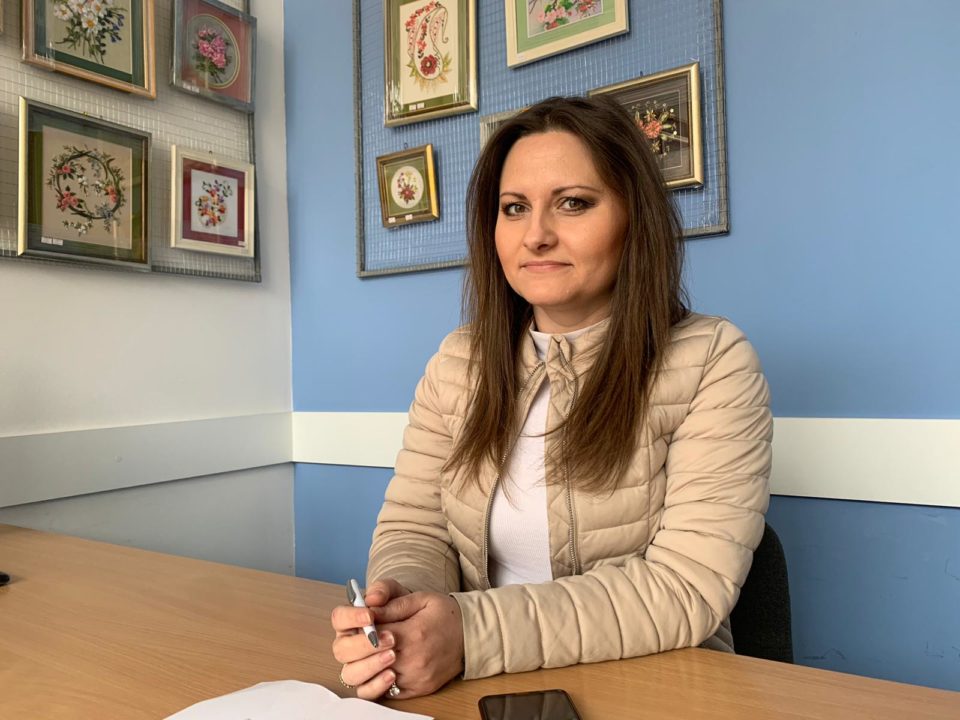
The recreational program includes preventive and corrective exercise, which is held daily in the center in six groups. According to Bašić, those who perform these exercises daily, as indicated by research, significantly improve their mobility. “It’s very satisfying when a member comes to you and says they’re getting up better, moving better, and are more mobile and flexible,” said Bašić.
They also offer table tennis at both beginner and advanced levels. She noted that interestingly, some of their oldest members attend the advanced group. One of these is 93 years old, and another, a 90-year-old, won first place in the giant slalom at Jahorina last year in skiing. Bašić pointed out that the Healthy Aging Center offers over 25 activities.
Useful, Fun and Educational
At the Center, which serves about 80 members daily, activities are conducted in five groups. With a symbolic monthly membership fee of five Bosnian marks, they can access the aforementioned activities as well as enjoy a creative program that includes various creative workshops such as decoupage, aluminum foil work, painting, and sculpture. The educational workshops offer language courses in English and German, and international days are marked with lectures by students or experts. The entertainment program includes two choirs, ‘Golden Autumn’ and ‘Sevdalije,’ which perform not only in this center but also in other centers and municipalities.
The Center also provides volunteer opportunities for students and fosters intergenerational collaboration through gatherings organized with kindergartens, schools, and other centers. Bašić mentioned that they often celebrate anniversaries, organize outings, hold intergenerational visits and events, and visit nursing homes, which is especially nice.
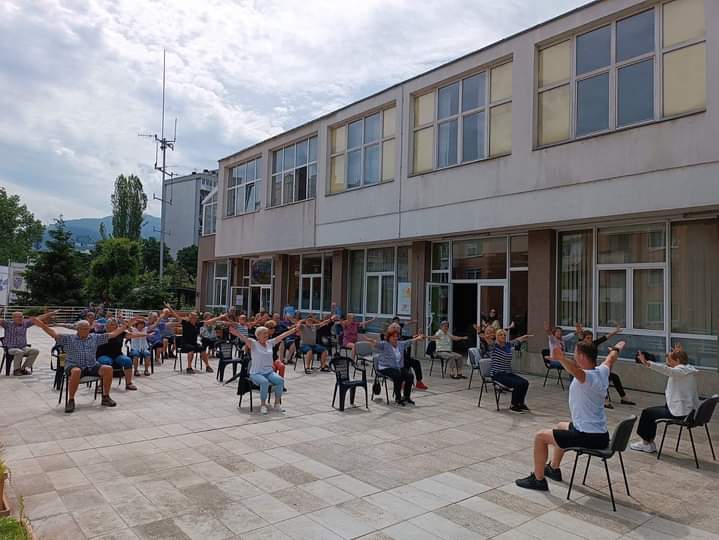
“Older people have a certain empathy towards younger ones, and many younger people learn from their elders, which brings a smile to their faces,” said Bašić. She notes that members appreciate the value of these centers and recommend membership to their friends. It’s important that they don’t close themselves off in their homes and understand that retirement isn’t the end of life and that they can continue to be active and socialize.
Outside the Center, members also get together, going for coffee and taking care of each other, which Bašić says makes them especially happy.
Most of the Elderly are on the Margins
Bosnia and Herzegovina is a signatory of the Madrid International Plan of Action on Ageing, aiming to ensure a dignified and secure old-age based on the principles of human rights and fundamental freedoms. The country has also signed the revised European Social Charter, which emphasizes recognizing and respecting the rights of older people to a dignified life, independence, and participation in social and cultural life.
Professor Sanela Bašić, from the Department of Social Work at the University of Sarajevo Faculty of Political Sciences, stated that, although Bosnia and Herzegovina was obligated to work on the implementation of international and European policies regarding the elderly, “in our impoverished and neglected society, a society of destroyed values and institutions, most of the elderly population is on the margins.”
“The basic sources of the rights of older persons are contained in laws governing pension and disability insurance, social protection, healthcare and health insurance (the right to health and access to healthcare services), and to a very limited extent, in family legislation. These are actually fragmented among entities, districts, and cantons, with an absence of an integrated policy towards older persons focused on ensuring a better quality of life at the economic, health, social, and cultural levels,” stated Professor Bašić.
She explains that social protection for older people in Bosnia and Herzegovina is implemented within several weakly connected and insufficiently coordinated systems, providing fertile ground for their rights to be neglected and ignored in this intersectoral vacuum that has been created.
According to Professor Bašić, challenges faced by the elderly in Bosnia and Herzegovina include low pensions resulting in a low standard of living, unsatisfactory healthcare services, especially for rural populations, the absence of alternative daily care for older people, and ageism or ingrained stereotypes and prejudices about old age and older people.
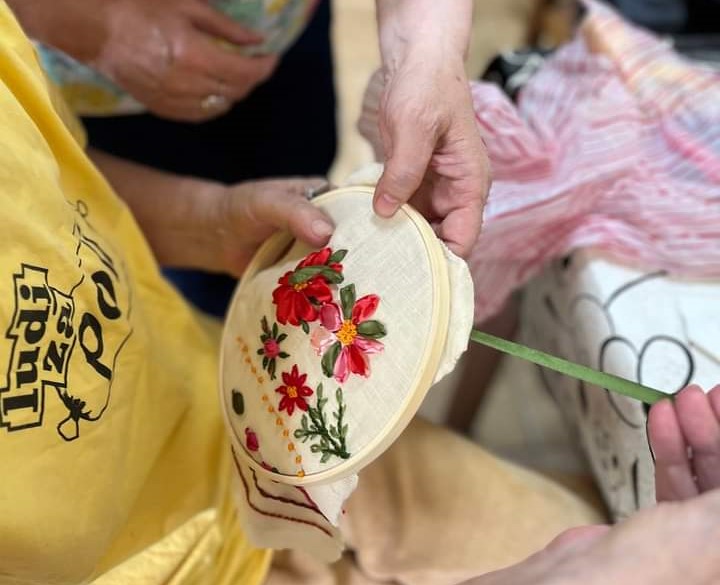
She highlighted the major challenge in old age of successfully resolving the crisis of “integrity versus despair” by accepting one’s own life as it has been and taking responsibility for the life one has led. “Erickson calls this acceptance of one’s small place in the order of things ‘ego integration,’” she explains, adding that in a collective sense, this could be called ‘wisdom,’ a quality often associated with old age.
The Need for Centers in Rural Areas
To successfully overcome this (final) developmental challenge, it’s necessary not only to support the adjustment of older people but to adapt the family and social system. The professor emphasizes that without this step—when the broader social system is unresponsive and, on the contrary, limits, excludes, and discriminates—it’s to be expected that the consequences for older people in terms of mental health will be negative.
Depression and dementia are two clinical conditions common among the elderly. Additionally, Professor Bašić highlights loneliness, which “can lead to serious mental health difficulties for older people.”
She regards Healthy Aging Centers as an important resource for social support and community involvement, as their activities focus on three crucial aspects of life: health, independence, and productivity. She believes that they should also be accessible in rural areas, where people often rely on family resources and support.
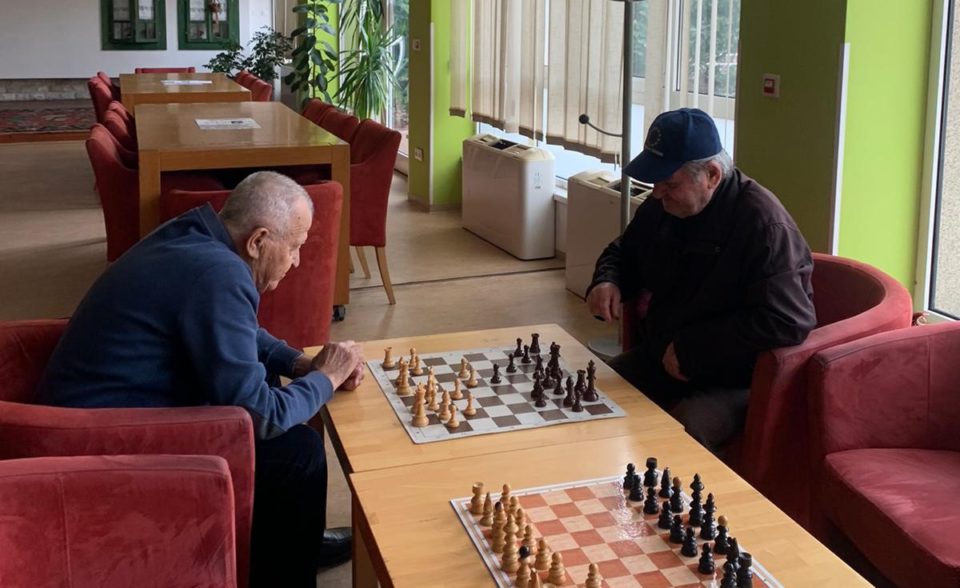
“Active aging is defined as ‘the process of optimizing opportunities for health, participation, and security to enhance the quality of life as people age.’ From the perspective of active aging, the crucial emphasis is on the word ‘active,’ which implies continuous participation in social, economic, cultural, spiritual, and civic issues—not merely the ability to be physically active or participate in the labor market,” said Professor Bašić.
Social protection for the elderly in Bosnia and Herzegovina includes financial compensation, subsidies, social services, as well as institutional and non-institutional care.
“The underdeveloped system of community-based social services is a deficiency of the existing social protection system for the elderly. To initiate social change and create conditions for a humane, dignified, and inclusive life for older people in this society, the current paradigm needs to be changed with regard to the relationship and responsibility of public institutions for the consistent and systematic implementation of adopted policies at all levels,” asserted Professor Bašić.
According to Professor Bašić, older people should be treated as first-class citizens with “the capacity to decide what makes their life meaningful, to choose activities they personally deem good and high-quality, to act as they see fit, autonomously, in accordance with the motto ‘nothing about us without us!’”






